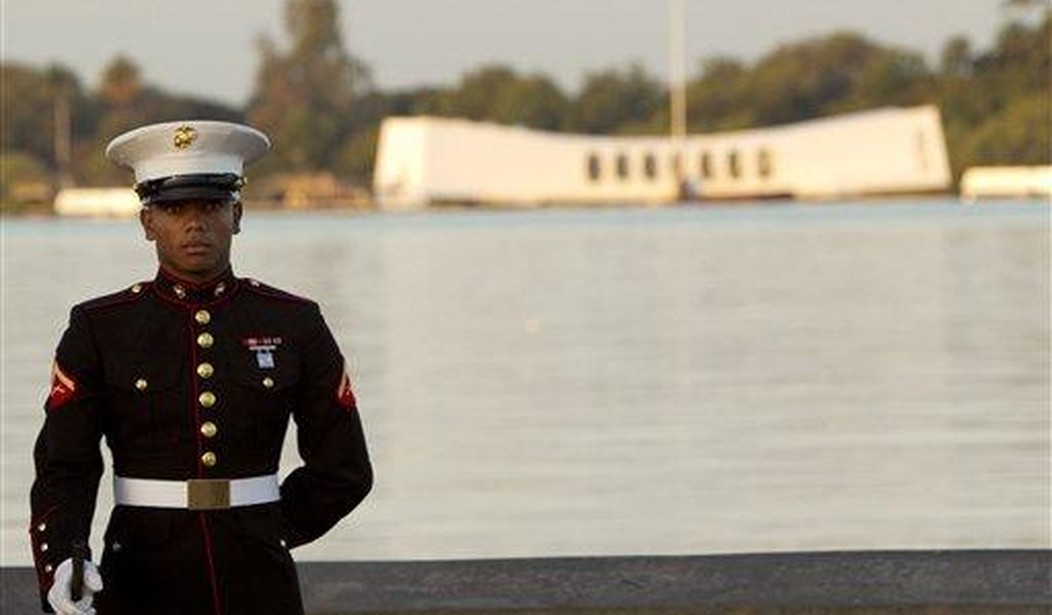The December 7, 1941, attack on Pearl Harbor changed all our lives in so many ways. It is one of the great if-only moments in American history. No war is inevitable, but this act by Japan closed all avenues to peace and brought ruin to so many. It was day one of a 50-year hot and cold war for the US that lasted until the last gasp of the Soviet Union on Christmas Day 1991.
The path to the attack was laid on July 26, 1941, when President Franklin Roosevelt retaliated for the Japanese takeover of French Indo-China, that pesky province known as Vietnam. He seized all Japanese assets in the United States. Britain and the Dutch East Indies did likewise as the Japanese moved on Singapore, grabbing resources vital to the West. The embargo cost Japan three-fourths of its foreign trade and 88 percent of its oil imports.
Given its desperate need for oil to fuel its war in Korea and China, the military leaders in Japan decided to go for broke, awakening the sleeping American tiger. Hideki Tojo was the prime Japanese spokesman for the age-old folly of “preventive war.” (Students of the Iraq War take note.) As the 19th century German statesman Otto von Bismarck put it, “Preventive war is like committing suicide out of fear of death.” And it truly was the suicide of Imperial Japan.
Historian Arthur Schlesinger, Sr. called the debate in the United States before the attack between those who wanted to intervene in World War II and those who wanted us to stay out one of the greatest debates in American history. Many in the U.S. public were jaded about foreign intervention in the aftermath of World War I and favored neutrality. As the saying went, rather than saving the world for democracy, America’s dead and wounded had just “pulled Britain’s chestnuts out of the fire.” After the war, democracy, rather than thriving, was on life support in a destabilized Europe.
Ignoring the strong American public desire to stay out of foreign wars, Japan, by its attack, and Germany, by its declaration of war, forced the issue. Debate promptly ended, launching a military-industrial complex, as Gen. Eisenhower called it, the world had never seen. And rather than shrinking after the war, it has continued to grow. Now American power is projected to all corners of the world.
Today our world is again seeing oil at the center of a world conflict. It is again seeing sparing diplomatic policies designed to corner opponents. It is again seeing invasions and embargoes throwing the world economy into chaos. It is again seeing the hardening of stances that violate the first rule of war, which is to allow your opponent a graceful way to exit a conflict and restore peace.
RELATED: Relax: Biden’s Cybersecurity Chief Says NatSec Apparatus Must Focus on ‘Dismantling Systemic Racism’
It is also a reminder that America’s best interests are served by energy independence. Whether you side with the global interventionists or fortress America non-interventionists in the debate that set America’s course into the 21st century, only an energy-strong America can be considered a serious world power. Only with readily available energy can the U.S. remain a world-class economy.
Criticizing Roosevelt’s convoluted foreign policy, Connecticut Congresswoman Clare Boothe Luce caustically said he was “the only American president who ever lied us into a war because he did not have the political courage to lead us into it.” Historians can debate the accuracy of her charge. Roosevelt was indeed walking a very fine line as a so-called non-belligerent. But is our foreign policy any less convoluted and schizophrenic today? As the Biden administration funds the war for unconditional victory in Ukraine, it also plays the doormat-dove with Iran and China. Yet all three are members of a defacto Eurasian oil alliance. In the meantime, Germany is being crushed as a European power between U.S. and Russian foreign policy goals. Is there a strategy here? Does it make sense? Are our leaders telling us the truth about their war and diplomatic aims?
In the past, the United States debated these critical issues in Washington. Today it is mostly crickets, with policy set by a clause here and a word there in some omnibus spending bill. Pearl Harbor Remembrance Day is a good reminder to pay attention. Foreign policy can go very bad, very fast, and hurt the country for a very long time in ways few of us can anticipate.










Join the conversation as a VIP Member